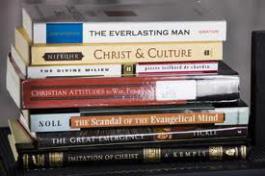 Addison, Steve, Pioneering Movements: Leadership That Multiplies Disciples and Churches (Downers Grove, IL: IVP, 2015), 192 pp, paperback, retail $16. ISBN 9780830844418.
Addison, Steve, Pioneering Movements: Leadership That Multiplies Disciples and Churches (Downers Grove, IL: IVP, 2015), 192 pp, paperback, retail $16. ISBN 9780830844418.
As one who is supervising the writing of a Master’s thesis over the course of this year on the topic of church planting, I was thrilled to receive a review copy from IVP on the notion of pioneering movements. What is especially helpful about this volume is its practical application to the multiplication (and not simply addition) of those participating in the job of planting churches and the planting itself.
This volume is the third one for Steve Addison (Movements that Changed the World and What Jesus Started) and it presses his work yet further offering a genuine proposal for creating church planting movements rather than simply planting churches ourselves. The key move forward for this volume is the specific implementation of training believers (however new to Christ they might happen to be) on how to plant churches and how to train others to plant churches. It is intentionally a movement that does not entail professionalization, but focuses instead on the enablement of all to carry forward the mission of Christ into the world.
A brief outline:
Addison opens with a brief discussion of the role and nature of the “apostle” in the Biblical text. He makes a case for apostolicity that functions to establish churches and develop others who will also establish churches and follows this with his own journey as an “apostle” and one training other “apostles” to plant churches and train others to follow (pp. 15-35).
Addison goes on to a short summation of the work of Jesus who himself focused on training others to release into the work of planting churches (pp. 37-46). He follows this up with a short (and helpful) summation of the work of Peter to do likewise as he had been commissioned by Jesus (pp. 47-59).
He shares numerous stories (historical and contemporary) of church planters and church planting movements which range from Latin America, Africa, the Caribbean, Asia Pacific, South Asia, China, Europe, the Islamic world, and North America. I found these numerous contexts to offer a multiplicity of motivational accounts from such diverse backgrounds (among the planters) and contexts, but with each following unique trajectories to see church planting movements established. This was a potent way to make the case for the methodology proposed by the intermingled methodological chapters.
Among his methodological chapters are such things as the proper relationship between the “church” and “missionary bands”. These should neither become confused with one another nor should either dominate they other, but they must work in fellowship with one another (no small task in the lived reality of people in the midst of redemption).
He goes on to describe five levels of “movement leadership”: (1) seed sower, (2) church planter, (3) church multiplier, (4) multiplication trainer, and (5) movement catalyst. These are not simple steps where one is intended to progress along from one to the next or like a ladder being intended to climb to the “top”. Instead, these simply function as various roles which must be filled as part of the move toward creating a church planting movement rather than simply planting churches. There is not really a linearity to the movement either. One might discover that their gifts are best used in one particular area rather than another, but each of these must be present to generate the church planting movement (pp. 95-108).
His marks of a church entail: recognized local leaders, habit of giving, Lord’s Supper is regularly celebrated, baptizing new believers, training to share the gospel, studies in basic discipleship completed, studies in church formation and self-recognition as a “church”. He does also hint multiple times when arguing for “self-governance” of all church plants that they must practice their own discipline as a part of their life as a church. To count as a “movement” this must become self-replicating to at least the “third generation” where a church that has been planted, has reproduced itself and that reproduction has also reproduced itself.
This volume was simple to read and offered a very basic introduction to how one might begin to work toward a church planting movement. It offers advice on simple ways of sharing Christ (such as asking, “What would be your miracle that I can pray for?”), training others to share Christ, and points to resources for just such training. Addison also offers a number of maps and charts/graphs throughout this work which offer helpful examples to visualize what he is describing. At times, it seemed this was almost more of a marketing scheme to acquire further resources (eg, the “Discovery Bible Study”), but the resources are actually offered freely and this is basically a form of an inductive study of Scripture which calls for accountability in putting into practice what has been heard in the text of Scripture.
He closes the volume with a discussion of the many reasons a person might not either do the work of church planting and multiplication by asking numerous questions rooted in actual experience among church planters that cover such issues as health, money, people issues, family, and persecution. With such realities one cannot simply think to put their hand to this work without counting the cost.
Addison’s approach is certainly friendly to a more Pentecostal/Charismatic approach as it presumes one lives in the gifts of the Spirit and expects miraculous answers to prayer. He also seeks to keep church planting movements from becoming over-reliant on outside resourcing (whether human or financial) which I find helpful against the likes of “The Gospel for Asia” methodology which seems to me a reversion to an earlier almost colonial form of missions focused on outsiders paying insiders to pastor and plant churches. This is emphatically opposed by Addison (much to his credit though he never names this organization specifically and I only offer it because of its impact via K. P. Yohannan’s book Revolution in World Missions).
Overall, I would commend this book to pastors, missionaries and church planters globally. I intend to give away copies myself since I see this as a launching point for working to advance churches being planted globally and the good news being shared with all of creation.
_________________________
*I received a copy of this book to review from IVP (for which I am grateful), but I was not financially compensated in any way. The opinions expressed are my own and are based on my observations while reading this volume.


 Today in our Adult Sunday School* we were discussing prayer and my mind was taken to how we as the Church might pray well. We seem to have a penchant for and pride in our “free” prayers as Evangelicals (and particularly as Pentecostals). However, it seems such “free” prayers may more often than not tend toward unguided babbling, self-centeredness, or even childishness over genuinely praying well in accordance with the will of God. (This is by no means to denigrate “free” prayers which form a significant part of my own prayer life).
Today in our Adult Sunday School* we were discussing prayer and my mind was taken to how we as the Church might pray well. We seem to have a penchant for and pride in our “free” prayers as Evangelicals (and particularly as Pentecostals). However, it seems such “free” prayers may more often than not tend toward unguided babbling, self-centeredness, or even childishness over genuinely praying well in accordance with the will of God. (This is by no means to denigrate “free” prayers which form a significant part of my own prayer life). I have a friend whom I remember visiting with about his preparations for preaching. He didn’t prepare. He would simply show up to the service a little early…play some worship music and “let the Spirit lead to whatever text the Spirit wants” and then he would go to the pulpit when it was time and preach “as the Spirit led.” (Or so his story to me went).
I have a friend whom I remember visiting with about his preparations for preaching. He didn’t prepare. He would simply show up to the service a little early…play some worship music and “let the Spirit lead to whatever text the Spirit wants” and then he would go to the pulpit when it was time and preach “as the Spirit led.” (Or so his story to me went).


 I love books! It is no secret. Anyone who knows me knows that I love books. But here is the deal…as much as I love books, when I first began pastoring I told myself I just didn’t have the budget to buy books for preaching, counseling, discipleship, leading, pastoring, imagination-development, literary interest, etc. I bought into the lie that I’ve heard many other pastors embrace. Then one day it dawned on me: This is my life calling! Why would I NOT invest in it. So I’ve made a point since then to build a strong pastoral library (and actually read the books I buy 😉 ).
I love books! It is no secret. Anyone who knows me knows that I love books. But here is the deal…as much as I love books, when I first began pastoring I told myself I just didn’t have the budget to buy books for preaching, counseling, discipleship, leading, pastoring, imagination-development, literary interest, etc. I bought into the lie that I’ve heard many other pastors embrace. Then one day it dawned on me: This is my life calling! Why would I NOT invest in it. So I’ve made a point since then to build a strong pastoral library (and actually read the books I buy 😉 ).
 Addison, Steve,
Addison, Steve, 